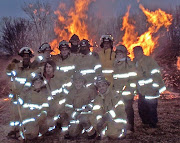In the Service of What? The Politics of Service Learning by Joseph Kahne and Joel Westheimer
Premise:
· American Schools
· Education/Learning
· Service
· Idealism
· Individualism
· Materialism
· Service Learning
· Community Service
· Beneficial
· Helpful
· Rewarding
· Students
· Caring/Kindness/Charity
· Civic Duties
· Rich and Poor
· Homeless
· Drugs
· Pregnancies
· Goals
· Compassion
· Volunteering
· Youth
· Understanding
Author’s Argument:
Kahne and Westheimer argue that “In the service of what?” is a question that inevitably merits the attention of teachers, policy makers, and academicians who take seriously the idea that learning and service reinforce each other and should come together in America’s schools. Along with this I found two more arguments that I think are relevant; in the political aspect, they argue that the efforts to integrate service learning activities into the curriculum have great potential and deserve the support they are now receiving. However, there is little attention towards the goals of service learning. Finally both authors’ argue that through service learning, this program can really have a positive impact on student’s understandings of both disciplinary knowledge and the particular social issues with which they are engaged. Also it allows students to get a first hand view on what is out there in their community, instead of only listening to what others say.
Evidence:
1. Moral Domain: giving and charity; A student in Mr. Johnson’s class volunteered at the Veterans’ Memorial Senior Center tells the story of how the student liked serving out the food and witnessed how happy the people were that they got to associate with their peers. The only problem with this is that there is a distance between the one caring and the one cared for diminishes. In many service learning experiences, students view those they serve as clients rather than as a resource.
2. Political domain; community service equals giving back to the community. An example is found where Sen. Kennedy writes what democracy means “… [it’s] the responsibility to give something back to America in return for all it has given.” Another great example is how Atlanta ensures that all students recognize “the responsibility of good citizens to help others.” Finally, Mr. Johnson believes that “community service… a vital part of the government course [because] part of citizenship is the practice of helping others in the community.”
3. Intellectual domain; This one tells how in Atlanta and Maryland a student must fulfill 75 hours of community service to graduate, and in Atlanta the student also must include a 500 word essay on their service learning project. Other states are following such as: Vermont, New York, the District of Columbia, Pennsylvania, and Minnesota. This just shows how service learning benefits the students. One student after doing their service in a community changed her view on everything she had heard; “[The neighborhood] isn’t as bad as the news makes it to be.” “The rumors I have heard are a big bunch of hogwash …I’m glad I went on that trip because it was a wonderful experience to meet new people and find out about their lives.”
Comments/Points to Share/Questions:
This article was hard to read at first, during the introduction, but once I began to read parts one and two I found it more engaging. I was surprised that Atlanta and Maryland students must complete 75 hours of community service and in Atlanta they have to write a 500 word essay in addition. But when I think of it, that really isn’t much for four years. At my high school we were required to complete 40 hours a year, but I know that many of my peers used to just make up hours here and there and hand the sheet in. Personally I used to submit over 200 hours a year of community service from dancing, fire fighting, and volunteering in the school where my mother works. Overall, the reading really made me think and helped me to realize the importance in doing my required total of 160 hours of community service in four years to graduate. I always wondered why the public school in my district only had to do 25 total hours to graduate, it makes perfect sense now.
Subscribe to:
Post Comments (Atom)



1 comment:
I really like how you use the evidence section to make sense of what you learned here, Kasey.
LB
Post a Comment